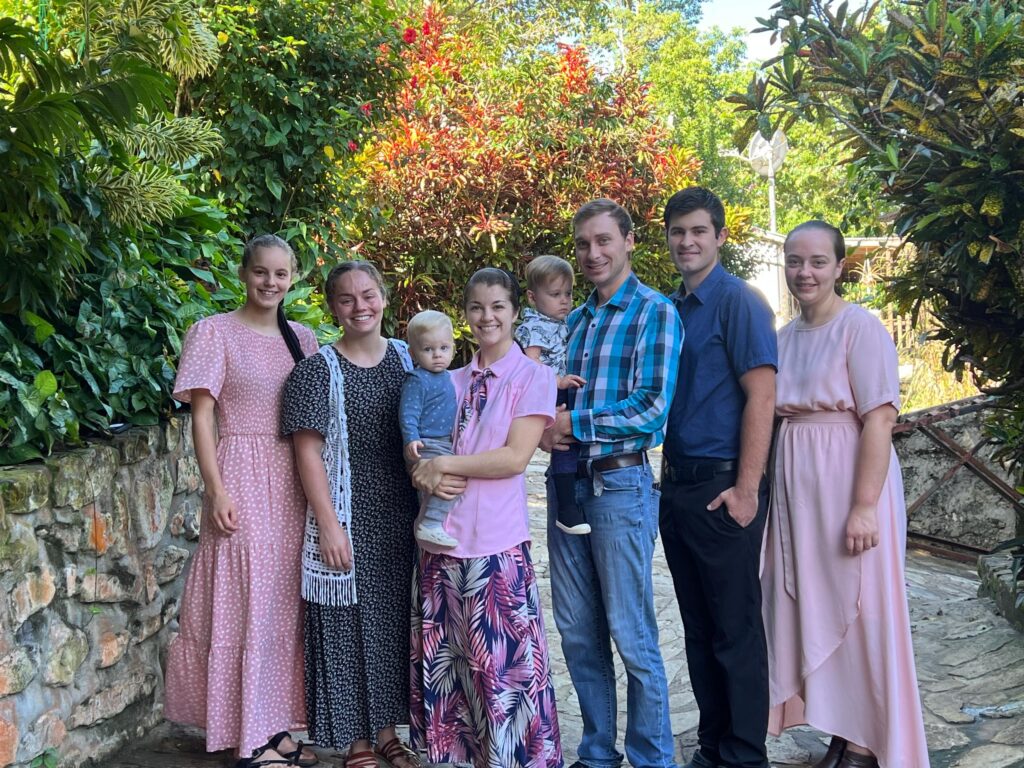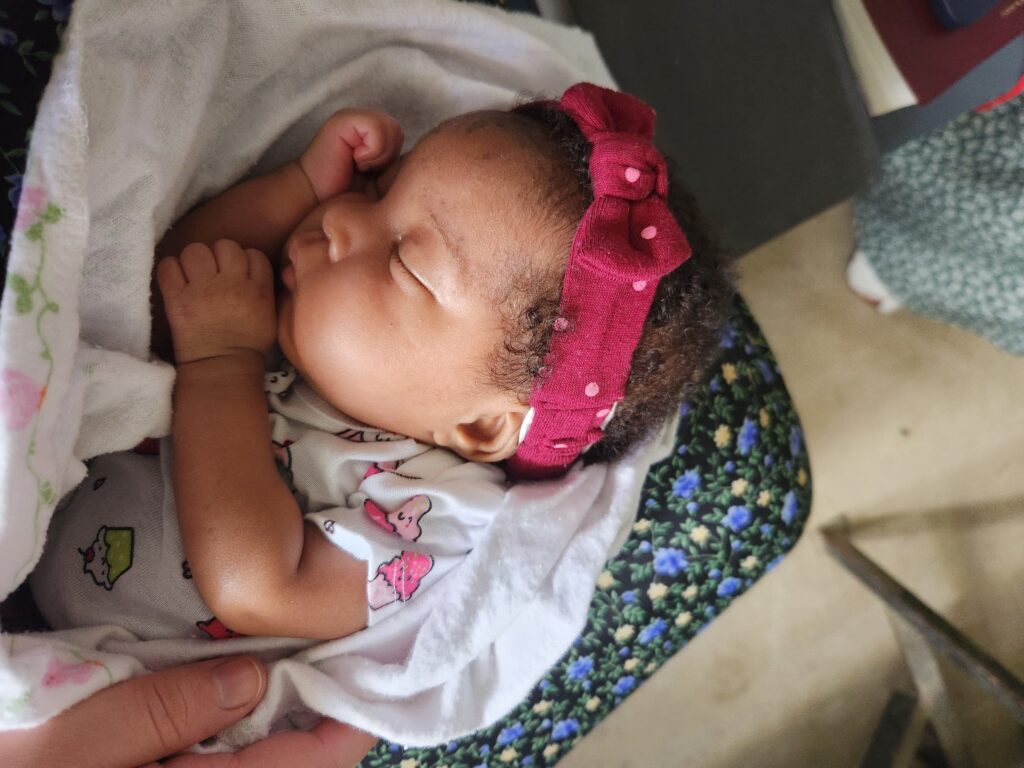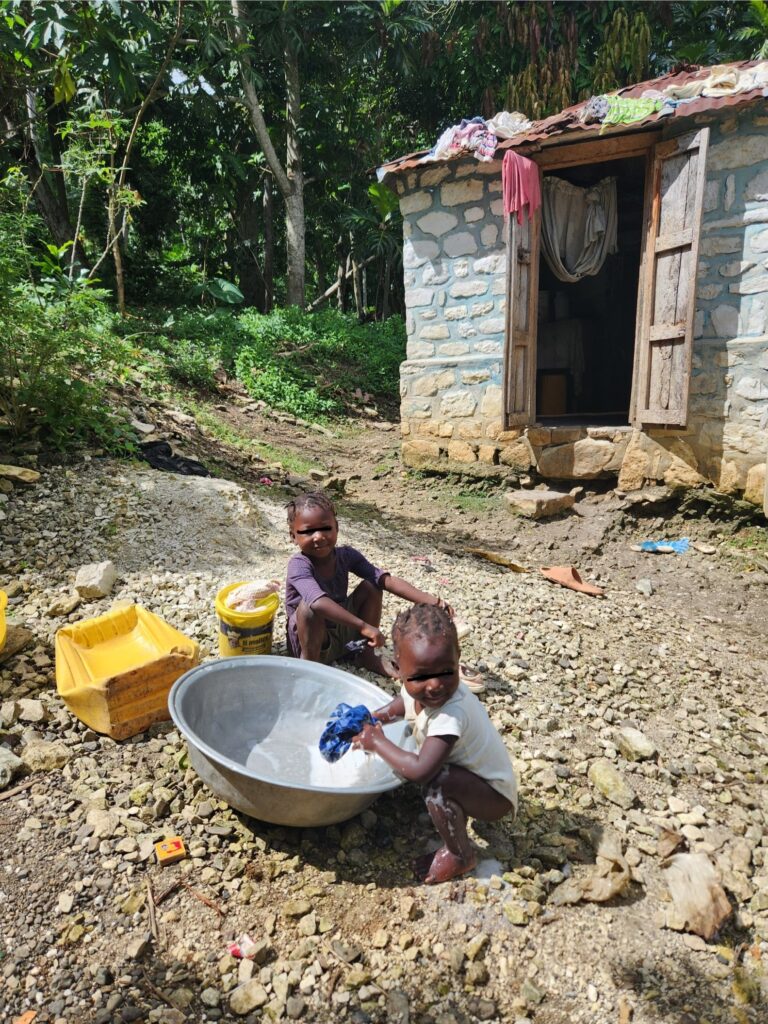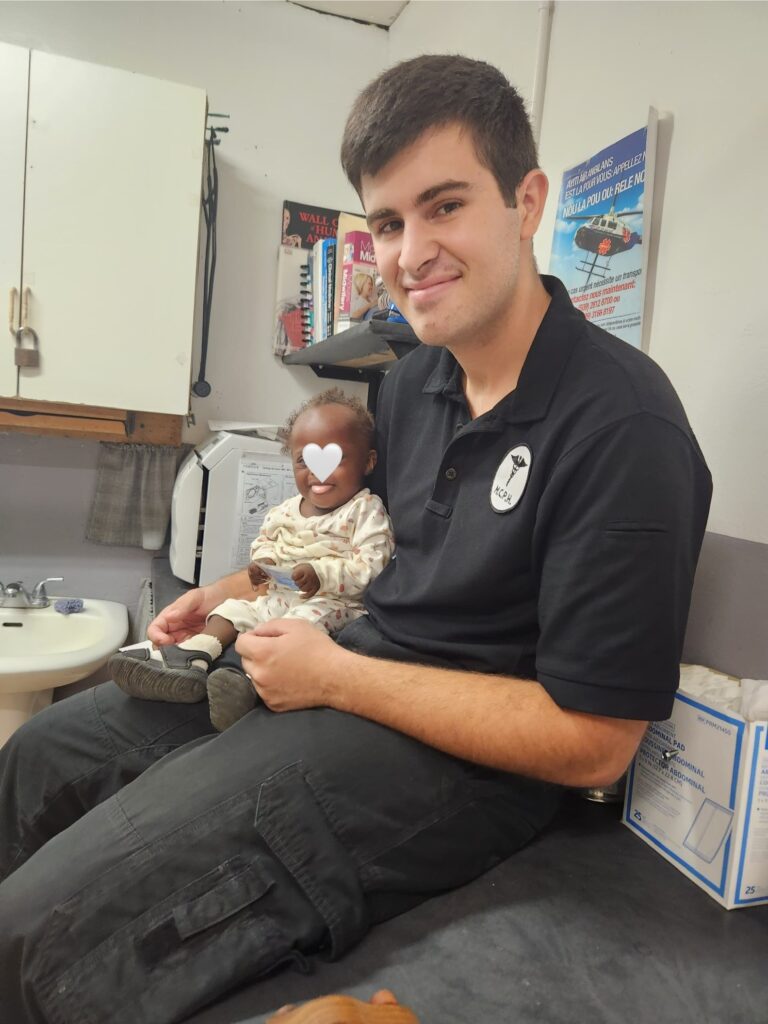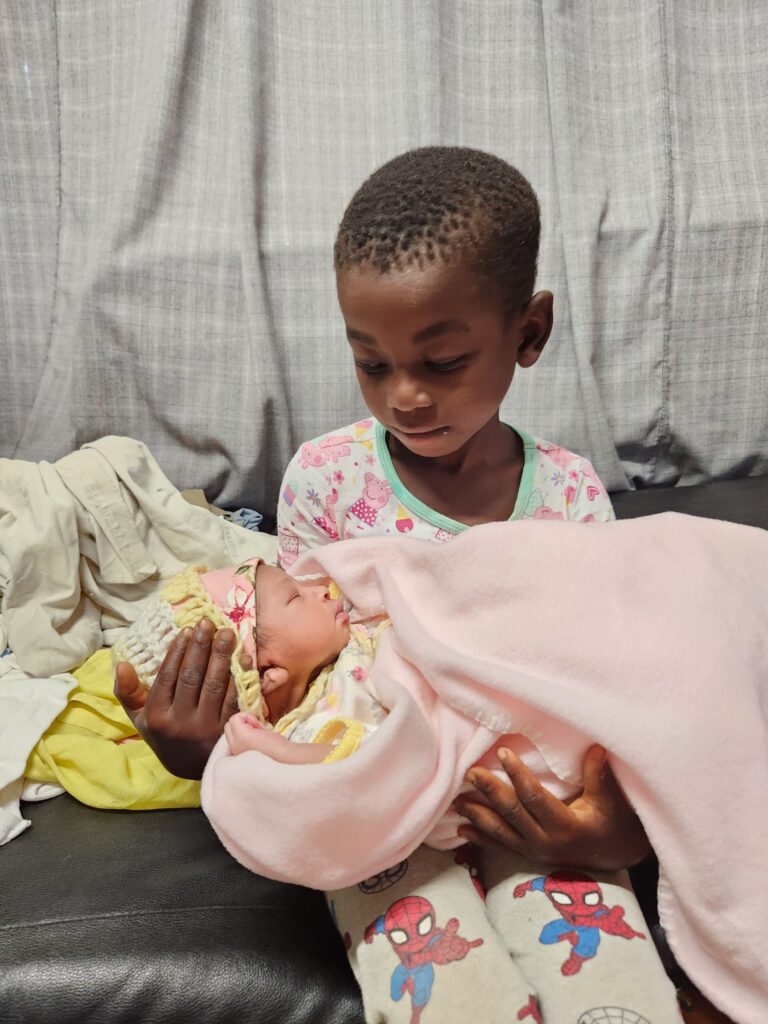“Mis Junie bezwen ou.” I hear Frè Norès’s voice and turn my head to see his smiling face in the doorway
“Ok, map vini.” I reply as I scribble a few more quick notes on a Dossier.
I rise from my desk and head towards Mis Junie’s room to discover why she summoned me.
I pass several patients seated in the hall, waiting on their consultations. I knock on Mis Junies door as I enter. She’s seated at her desk, making some notes on a new dossier. I glance to the other chair in the room and see a young lady, holding a pile of blankets. She flips a corner of one of the blankets back and I see a tiny pale sleeping face. I ask to hold the baby, and we start peeling layers of blanket away. I pick up the frail body, cradling her limp body gently in my arms. Her eyelids flutter, and I notice how dehydrated she looks. She whimpers a little, but doesn’t seem to have have much strength. Mis Junie asks me to add her to the milk program, and I immediately agree. I’ll weigh the baby, sure, but I can already tell she qualifies for the program just by looking at her sunken cheeks and anemic skin. Mis Junie hands me the dossier, and I ask the mom to follow me back to my desk.
The new mom sinks into the chair by my desk, setting the pile of blankets on the floor beside her. Her husband joins us, setting his backpack and waterjug beside the blankets. I weigh the baby and the scales flashes 2.1 kg. She’s the weight of a preemie.
At my desk, I pull out my folder and clipboard to add a new patient to the milk program. I attatch a lined paper with sections to chart each visit: date, weight, payment, supplies given, a general note and next appointment. The WHO weight-to-age chart is also added to the dossier so we can plot progress each visit.
Then I start to ask questions. How old is she and what’s her birthday? Three weeks old. Where was she born? At home. Was she this small when she was born or has she lost weight since birth? Maybe she’s lost some weight, but their not really sure. Today is their first day to a clinic with their daughter. Was the baby full term? They think so, but aren’t sure. Does the baby nurse and does the mom have milk? She had nursed for a week or two, but the moms milk dried up a last week. Have they bought milk somewhere else for the baby? Yes, a little, but it’s so expensive. What else have they been feeding the baby? Mostly tea and salt crackers. Where do they live? They say the name and I recognize it as a zone that’s far away. What time did they leave this morning and did they come on a moto? They left their house at 5:00 and got to clinic just before 10:00. No, they walked. Motos are to expensive.
We begin to discuss plan of care. I think they understand how critically fragile their baby is currently, but I tell them anyway, just to make sure they know. I ask if they’re able to stay overnight so we can monitor the baby. They opt to take their baby home since they didn’t come with any supplies of food or clothing for overnight. I consent, explaining I’m in agreement with that decision as long as they make sure the baby is getting fed very regularly. I again explain the severity of her case and how it can quickly worsen at this stage. They understand.
We go over qualifications for the milk program. Would they be able to come every 2 weeks to buy a marmit of milk for 500 goudes ($3.79USD)? They think so, as long as they can find the money. I reassure them that they can still come, even if they can’t pay in full. The baby needs to come along each time to, so I can weigh and assess her. They agree.
I show the parents how to mix up a bottle of milk with milk powder. We give the baby her bottle and she takes a few sips. Her suction is good, and she has enough strength to drink. Good, I’m greatful! Some calculations are done to figure out how many ounces of milk she’ll need daily. I show to the parents how to measure it at each feeding. They seem to understand. We talk about regularly feeding her, even throughout the night. I suggest writing down the time and amount of milk she drinks each feeding so they make sure she’s getting her full amount each day. The mom tells me shyly she can’t read or write. Oh ya, I momentarily forgot not everyone has had an opportunity to go to school. I glance at the dad, and ask him if he knows how to read or write. He shrugs and says he might be able to read a little. He pulls out his smart phone and shows me he can tell time and a few other things. I use the edge of my clipboard to draw a feeding chart on a blank piece of paper, then show the dad where to write each feeding, and calculate the total at the end of the day. He understands.
Two sets of clothes, a small hat, several cloth diapers, 2 blankets and a marmit of milk are packed into a bag for them. I show them how cloth diapers work, write their next appointment date, and tell them they’re free to return home now, unless they need anything else. They express their thanks as they pick up the pile of blankets and start laying them flat. I lay the baby in the middle and mom starts gently tucking all the corners around the tiny body. The dad stuffs the bag of supplies into his backpack and the mom gathers the baby into her arms. They turn to head out. At the door, they both turn and say “Mèsi, Bondye beni ou” (Thank you, God bless you) then they disappear around the corner, smiles on their faces and hope in their eyes. I breath a prayer that the baby will regain strength, and that I’ll see her again soon.
